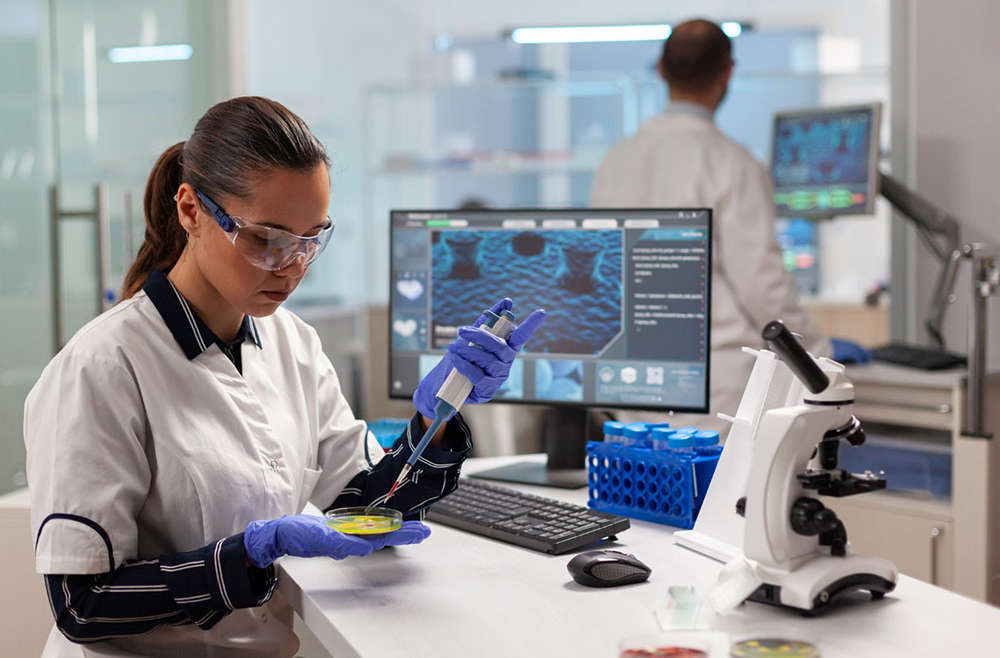Microdosing involves taking tiny, nearly imperceptible amounts of psychedelic substances like LSD or magic mushrooms. These amounts are much smaller than a regular recreational dose, usually about 1/10th to 1/20th. The process has become popular due to potential cognitive and therapeutic effects.
When discussing microdosing’s science, it’s crucial to highlight the Multidisciplinary Association for Psychedelic Studies (MAPS) as a primary resource. They’ve been leaders in psychedelic research and therapy, offering significant insights.
Knowing the science of microdosing helps in understanding its potential pros and cons. In this article, we’ll look at its history, the brain chemistry involved, its benefits, and the studies that clarify this fascinating subject.
Psychedelics for Microdosing
Recently, microdosing psychedelics for cognitive and mood benefits has become trendy. Of these, LSD and psilocybin from magic mushrooms are most popular. We’ll explore their distinct characteristics and effects when microdosed.
LSD (Lysergic Acid Diethylamide)
LSD, a man-made compound, has strong psychedelic effects at higher doses. In microdosing, users typically may take about 10-20 micrograms. Such small doses can lead to increased creativity, concentration, and mood enhancement, without intense hallucinations. It often boosts energy and productivity.
Psilocybin (Magic Mushrooms)
Psilocybin naturally occurs in certain psychedelic mushrooms. When microdosed, it may improve mood, decrease anxiety, and enhance empathy. Users often feel a deeper connection to their environment.
The choice of these psychedelics for microdosing comes down to:
- Strength: Both LSD and psilocybin are strong, allowing for smaller amounts to produce desired effects.
- Duration: They both have long-lasting effects, making them good for intermittent microdosing.
- Safety: They have low toxicity and a safe use history in controlled settings.
- Evidence: Both anecdotal stories and limited research suggest positive outcomes.
- Accessibility: They’re more available than other psychedelics, making microdosing more feasible.
Microdosing’s Science
Psychedelic Brain Chemistry
Serotonin Receptors
Substances like LSD and psilocybin affect serotonin receptors in the brain, mainly the 5-HT2A subtype. They partially activate these receptors, altering brain signals, which influences mood, perception, and thought processes.
Serotonin is vital for mood and perception. Imbalances can lead to mood issues like depression. Psychedelics can shift mood and sensory experiences due to their effect on serotonin.
Default Mode Network
The Default Mode Network (DMN) is linked with introspection and self-awareness. It’s most active when our minds aren’t focused externally. Psychedelics can alter DMN activity, causing feelings of unity with surroundings and reduced ego-centric thoughts. This is believed to explain the profound experiences during high-dose psychedelic use.
Differences between Microdosing and Full Doses
Microdosing varies from high-dose psychedelic experiences:
– Dosage: Microdoses may be around 1/10th to 1/20th of a regular dose, preventing intense hallucinations.
– Frequency: Microdosing is done regularly, while high doses are occasional.
– Intensity: Microdosing’s effects are subtle, enhancing daily tasks, while high doses are intensely transformative.
– Purpose: High doses are used for deep introspection, while microdosing is mainly for cognitive improvement and mood regulation.
How It Works
Cognitive Boost
Microdosing could enhance cognitive functions through serotonin regulation and increased neuroplasticity. It might enhance creativity, problem-solving, and concentration, but research continues.
Mood Regulation
Microdosing has potential for anxiety and depression relief. Early research and user stories suggest mood-improvement effects.
Creativity Enhancement
Microdosing has been linked to improved creativity and broader problem-solving perspectives.
Neuroplasticity is the brain’s adaptability throughout life. Psychedelics, including microdosing, might influence this by promoting synapse growth and enhanced neuron communication, improving learning and cognitive flexibility.
Microdosing Benefits
Anxiety and Depression
Microdosing has potential to reduce anxiety and depression symptoms. Some users feel better overall well-being after starting. Its mechanisms are still under study, but it might impact serotonin receptors.
Limited research exists due to legal challenges. But user accounts suggest it can help manage mood disorders. More studies are necessary to verify its safety and effectiveness.
PTSD
Microdosing appears promising for PTSD treatment. Psychedelics like MDMA and psilocybin have been studied for their potential in reducing PTSD symptoms. Its impact on emotion and fear might benefit PTSD patients.
Research suggests that microdosing could complement traditional PTSD treatments. Yet, controlled studies are needed to determine its true potential.
Microdosing’s Future
Current Popularity
Microdosing has gained immense popularity lately. Its growth is due to online communities, literature, and user accounts. Its potential therapeutic and cognitive benefits have caught global attention.
Microdosing communities offer advice, dosing suggestions, and shared experiences. These have become key information sources.
Future Research Predictions
Microdosing’s research future looks promising:
– Clinical Trials: Expect more clinical studies examining microdosing’s therapeutic potential.
– Neuroscience Breakthroughs: New technologies might unveil how microdosing impacts the brain.
– Personalized Protocols: Research might develop individualized microdosing methods.
– Long-Term Studies: Understanding long-term effects will become crucial.
At Infinity Treatment Centers, we’re on the path of advanced mental health treatments. We explore novel therapies to help individuals overcome mental challenges. Our revolutionary Spravato treatment has shown promise in battling depression. Let’s create change together.

